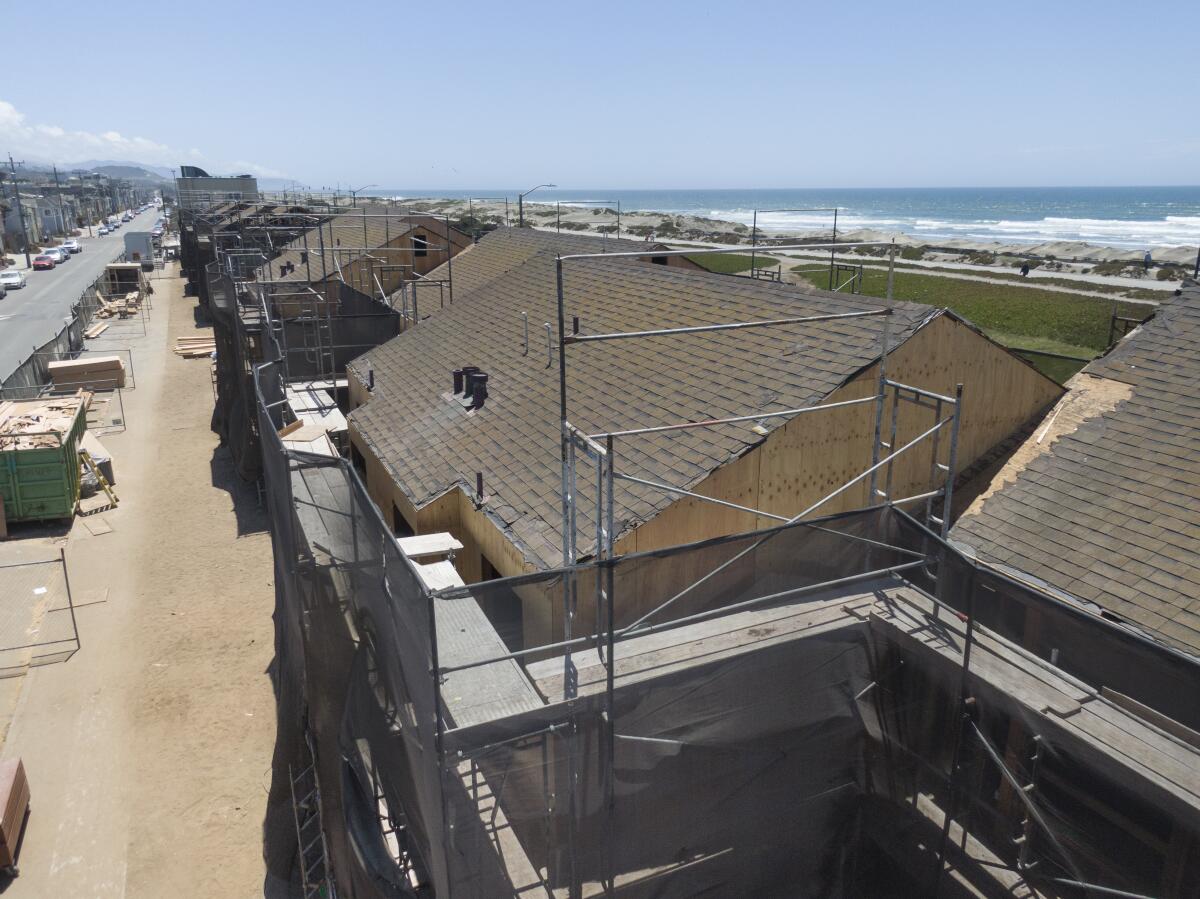California voters will decide in 2024 whether to lower bar for new taxes and housing bonds

- Share via
In 2022, nearly 60% of voters in Berkeley approved a $650-million bond to build affordable housing and repair streets, sidewalks and other outdated infrastructure.
The same year, more than 61% of voters in Lompoc, Calif., backed a 1% special transient occupancy tax increase for hotels, motels, short-term rentals and other lodgings to pay for police and fire services.
And in Sonoma County, a 2020 sales tax that would have raised an estimated $51 million each year for wildfire prevention earned close to 65% of the vote.
All three ballot measures still failed.
That’s because California requires approval from two-thirds of voters on certain special tax increases and bond measures, a threshold set by the 1879 state Constitution and through ballot measures such as Proposition 13 in 1978.
Democrats in the state Legislature are trying to overhaul that requirement. They introduced Assembly Constitutional Amendment 1 this year to ask voters whether the threshold to approve new special taxes and bonds for affordable housing and public infrastructure projects should be lowered to 55%.
The constitutional amendment required a two-thirds majority vote in both houses of the Legislature. The Assembly narrowly approved the bill on Sept. 6 in a 55-10 vote, with Republicans in opposition and a number of moderate Democrats in the 80-member chamber withholding their vote. The 40-member Senate finalized it Thursday in a 29-10 vote.
Voters will now have the final say on the November 2024 ballot.
Here’s what you need to know:
What would ACA 1 help build?
The ballot measure won’t itself approve any special taxes and bonds or lead to the construction of new housing or public projects.
Instead, it’s asking voters whether the threshold to pass taxes and bonds that cities use to pay for local services and affordable housing should be lowered from two-thirds to 55%, the same bar required to pass bonds for school renovations.
The proposal adds certain accountability requirements, including annual and independent audits of how money is used, and the establishment of citizens’ oversight committees to track spending.
“Our state and local governments are under enormous pressure to address an ongoing crisis with housing and homelessness,” Assemblymember Cecilia Aguiar-Curry, a Winters Democrat who wrote the proposal, said during a Monday committee hearing. “You cannot have housing without roads and sewers and public safety facilities. And approving ACA 1 will provide the most accountable transparent method in our state for doing so.”
Why do supporters think this is a good idea?
Supporters of ACA 1 say requiring approval from two-thirds of voters has stymied affordable housing construction over the last several decades, and blocked necessary funding for public safety services and upgrades to parks, libraries, water or streets.
The initiative is sponsored by influential unions representing public service workers and construction laborers. Affordable housing groups, along with dozens of cities and counties across the state, also support ACA 1.
Jason Rhine, a lobbyist for the League of California Cities, said that when measures fall short of a supermajority vote, local governments are left without funds to update their infrastructure or build much-needed affordable housing to address a ballooning homelessness and mental health crisis.
“If a measure fails, there really isn’t adequate resources there to take on all these really difficult challenges,” Rhine said.
Other advocates for ACA 1 see it as course-correcting the fallout from Proposition 13, which they see as one reason housing in California is scarce and homeownership unaffordable.
“The voters of that era were a different cohort of voters,” said Matt Lewis, a spokesperson for the pro-housing group California YIMBY. “We are now living in the 21st century with a set of tax measures passed by Californians 50 years ago almost.
“The basic nature of ACA 1 is how about we try a little more democracy in how we fund the things that we care about in California?”
What are the arguments against ACA 1?
Opponents of the measure contend it will make California, already one of the most expensive states to live, even more inaccessible to middle- and low-income residents.
Taxpayer watchdogs argue that ACA 1 rolls back long-established protections that maintain lower property and sales taxes. They say new taxes will drive businesses out of California, harm workers and add barriers to home ownership.
Jon Coupal, president of the Howard Jarvis Taxpayers Assn., called ACA 1 a “direct attack on Proposition 13” that “opens the floodgates to higher taxes.”
“The loss of that important protection in Prop. 13 means that struggling taxpayers will be hit with higher local taxes again and again after every election,” Coupal said.
Peter Blocker, vice president of policy at the California Taxpayers Assn., said ACA 1 could lead to more than $250 million in increased taxes every election cycle. Blocker said the two-thirds threshold established by Proposition 13 safeguards Californains against “excessive taxation.”
“It should come as no surprise that one of the biggest concerns we hear from taxpayers is the rising cost of living in California,” Blocker said. “We think ACA 1 will worsen this problem and make the state less affordable.”
Aguiar-Curry fast-tracked the proposal in the final weeks of this year’s legislative session, but pledged to work on new legislation in 2024 to clarify remaining questions and ease opposition to the measure.
More to Read
Sign up for Essential California
The most important California stories and recommendations in your inbox every morning.
You may occasionally receive promotional content from the Los Angeles Times.














